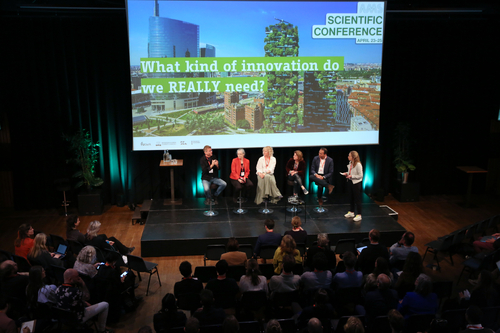City Panel: What kinds of innovations do we really need and really matter?
Onderdeel van
Trefwoorden
What kinds of innovations do we really need and really matter?

The panel discussion centered on identifying and understanding the innovations essential for modern urban challenges, particularly in Amsterdam. Carlo Ratti emphasized the unpredictable nature of "playful innovations," like the internet, highlighting the randomness in innovation. Corinne Vigreux underscored the need for accurate, real-time data, while Carola Hein stressed critical interpretation of this data.
‘‘How do we interpret data? Maps always lie; we need to understand what the borders of the data are, what we can and can’t do with the data.’’ - Carola Hein
Erik Versnel pointed out the necessity of combining various data dimensions for a comprehensive understanding, after which Sasha Stolp referenced new European guidelines on sustainable development goals for broader welfare.
For future innovations, Vigreux proposed an interoperable digital map, or "digital twin," to facilitate further innovations like autonomous driving. Ratti advocated for accessible data platforms, enabling everyone to contribute. Stolp emphasized context-specific solutions for Amsterdam.
‘‘Not all innovations are applicable for Amsterdam. For example, how do we preserve heritage? And how can we work together with nature?’’ – Sasha Stolp
Versnel called for integral system transformations to break down silos. Hein argued against "best practices," suggesting they hinder future progress and advocated for aligning student perspectives with practical innovations.
The panel concluded that people are central to all innovations, requiring continuous feedback loops. Innovations should scale within the ecosystem, integrating technical and societal advancements, and addressing real-world problems to achieve significant impact.
Recorded during the Scientific Conference Reinventing the City 2024 in Pakhuis de Zwijger, Amsterdam.
Afbeelding credits
Icon afbeelding: 7F7A9509.JPG